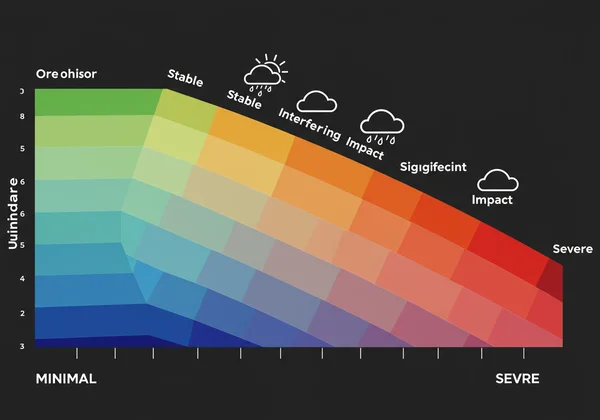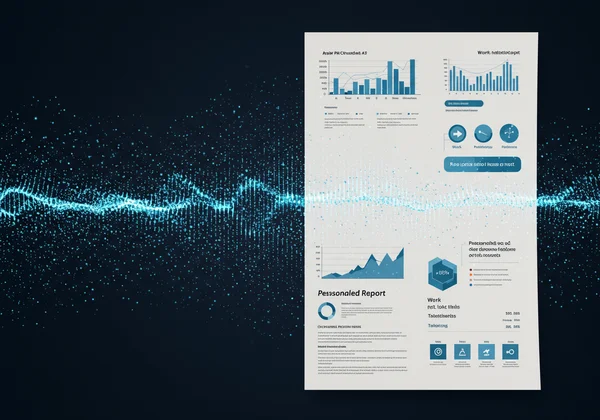Mental Health Test Results: Meaning & Next Steps
August 4, 2025 | By Owen Buckley
Receiving your mental health test results can feel like a significant moment. You might be curious, a little anxious, or even relieved to have a name for what you've been feeling. But the most common question that follows is, "What do these scores actually mean for my life?" This guide is here to walk you through that question with clarity and compassion. We will explore how to interpret your scores, understand their context, and, most importantly, discover actionable next steps to support your emotional wellbeing.
Remember, a mental health screening is a powerful first step in a journey of self-discovery. It’s an empowering tool for understanding, not a definitive label. The information you've gained is a starting point, and we're here to help you navigate what comes next. If you haven't taken one yet, you can start your assessment anytime.
Understanding Your Mental Health Scores
A score from a mental health test can feel abstract, but it's a valuable piece of data about your current emotional state. Think of it less like a final grade and more like a weather report—it gives you a snapshot of your internal climate right now, helping you decide if you need an umbrella, a light jacket, or just a pair of sunglasses.
Decoding Your Score: What the Numbers Indicate
Most reputable online mental health tests, including the ones on our platform, are based on scientifically validated screening tools like the GAD-7 for anxiety or the PHQ-9 for depression. These are the same screeners that are often used in clinical settings to get a quick and reliable measure of symptom severity. Your score places your experience on a spectrum, typically categorized as:
- Minimal to Mild: Your score suggests you are experiencing few, if any, symptoms. While you may have occasional bad days, your emotional health is generally stable. This is a great time to focus on proactive wellness habits.
- Moderate: This score indicates that you are consistently experiencing symptoms that likely interfere with your daily life. It’s a clear signal to pay closer attention to your mental health and begin implementing targeted coping strategies.
- Severe: A score in this range suggests that your symptoms are frequent, intense, and significantly impacting your ability to function. This result is a strong indicator that it is time to seek professional support.
It's crucial to see this score not as a judgment but as information. It provides a language to describe your experience, making it easier to track and communicate.

The Value of Personalized AI Insights
A simple number, however, doesn't tell the whole story. This is where modern tools can offer a richer understanding. Our platform's unique AI analysis goes beyond the score from your mental health screening. By optionally providing more context about your lifestyle and coping mechanisms, you can unlock a personalized report.
This report translates your score into a meaningful narrative. It can highlight your personal strengths, identify specific challenges, and explain how your symptoms might be manifesting in your work, relationships, or personal life. This transforms a simple score into a detailed, insightful guide for your journey, giving you a clearer picture than a number alone ever could. You can discover your results to see how this works.

What to Do After Your Mental Health Test
Receiving your results is the beginning, not the end. The real impact comes from putting this knowledge into action. Whether your score is low, high, or somewhere in between, there are always positive, proactive steps you can take to nurture your emotional wellbeing.
Empowering Self-Care Strategies for Different Scores
Your results can help tailor your self-care plan. Not all strategies work for everyone, and your score can guide you toward what might be most effective for you right now.
- For Mild Scores: Focus on maintenance and building resilience. This is the perfect time to explore preventative wellness practices like daily mindfulness exercises, journaling to process emotions, maintaining a regular sleep schedule, or engaging in hobbies that bring you joy.
- For Moderate Scores: It's time to be more intentional. Consider structured self-help strategies. This could involve learning cognitive-behavioral techniques to challenge negative thought patterns, creating a firm routine to provide stability, or practicing grounding exercises when you feel overwhelmed. Taking another anxiety test or depression test after a few weeks can help you see if these strategies are working.
- For Severe Scores: While self-care is still important, its primary role is to support professional treatment. Gentle activities like short walks, listening to calming music, or connecting with a trusted friend can be beneficial while you arrange for more structured support.
When & How to Seek Professional Help
One of the most important functions of a mental health test free of charge is to act as an early warning system. It helps you recognize when your feelings might be more than just a rough patch. If your results indicate moderate to severe symptoms, or if your emotions are causing you significant distress regardless of the score, it is a sign to seek professional consultation.
Bringing up mental health with a doctor can feel intimidating. Your test results can make this easier. You can start the conversation by saying, "I recently took a confidential mental health assessment online that used the PHQ-9 scale, and my results suggested I have moderate symptoms of depression. I'd like to talk about that." This gives your provider a clear, data-informed starting point. Remember, their job is to help, not to judge.

Continuing Your Mental Wellbeing Journey
Mental health is not a destination you arrive at; it's a continuous journey of awareness and care. Your initial test is just one landmark on that path. The goal is to build a life where you feel equipped to handle the emotional ups and downs that are a natural part of being human.
Tracking Your Progress and Re-assessing Over Time
Your emotional state is dynamic. It changes based on life events, stress levels, and the coping strategies you use. Just as you might monitor your blood pressure, you can monitor your mental health.
Re-taking a free mental health test periodically—perhaps monthly or quarterly—can be an incredibly empowering practice. It allows you to see tangible evidence of your progress. If you've been working on a new self-care routine, seeing your anxiety score decrease can be a huge motivator. Conversely, if you notice your score creeping up, it’s an early signal to re-focus on your wellbeing before things become overwhelming.
Additional Resources for Support and Growth
Your journey is your own, but you don't have to walk it alone. Beyond our screening tools, continue to arm yourself with knowledge and support. Explore reliable resources that teach healthy coping mechanisms, read about the experiences of others to feel less alone, and work on building a strong support system of friends, family, or professionals.
Continuously learning about topics like stress management, emotional regulation, and healthy communication is an investment in your long-term happiness. We are committed to being a trusted resource on your path to growth.
Your mental health test results are a gift of self-awareness. They provide a clear, objective starting point for understanding your inner world and taking control of your wellbeing. By interpreting your scores, leveraging personalized insights, and taking informed next steps, you are making a profound investment in yourself.
Whether your path involves building a robust self-care routine or seeking professional guidance, you have already taken the most important step: choosing to pay attention. Remember, our platform is here to support you on your journey. Take another free test anytime to track your progress or gain fresh insights. Your path to a healthier, happier you starts with understanding.
Frequently Asked Questions About Your Mental Health Test Results
How accurate are online mental health tests like those on our platform?
This is an excellent question. The accuracy of an online test depends entirely on its foundation. The tests on our platform are based on clinically validated screening questionnaires like the GAD-7 and PHQ-9, which are widely used by psychologists and doctors. This means they are highly reliable for screening and identifying symptoms that warrant further attention. However, they are not a substitute for a formal diagnosis from a qualified healthcare professional.
Do my test results mean I have a mental health disorder?
No, your test results do not constitute a diagnosis. Think of our online mental health test as a smoke detector: it alerts you to the presence of smoke (symptoms), but it takes a firefighter (a professional) to determine if there's a fire (a disorder) and what to do about it. A formal diagnosis can only be made by a qualified professional who can take into account your full medical history and life context.
Can I test my mental health regularly to track changes?
Absolutely! In fact, we encourage it. Regular check-ins are a proactive and empowering way to manage your emotional wellbeing. Just as you might step on a scale to monitor your physical health, you can use our confidential mental health assessment to monitor your emotional state over time. It's a fantastic way to see the impact of positive life changes or new coping strategies.